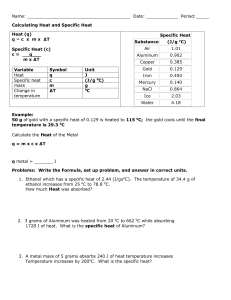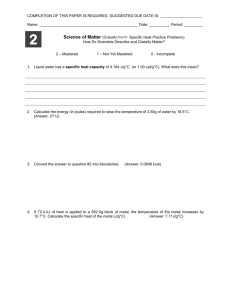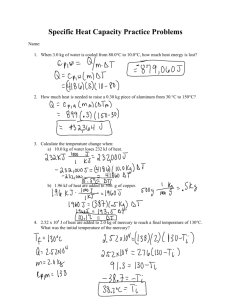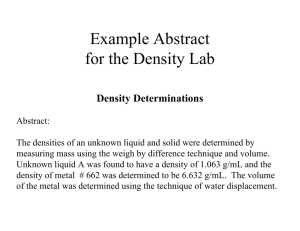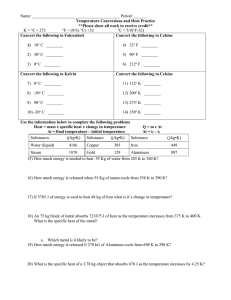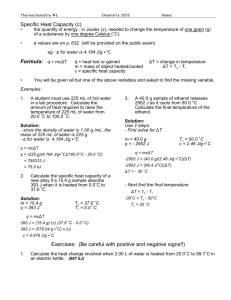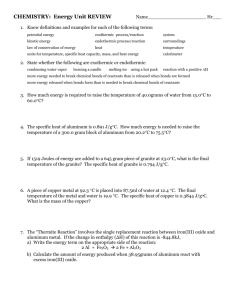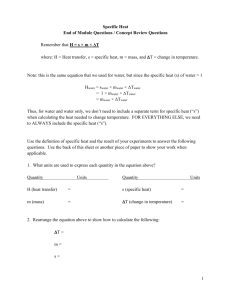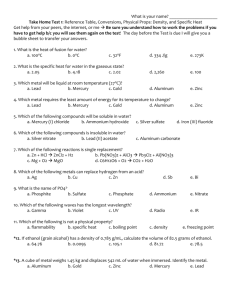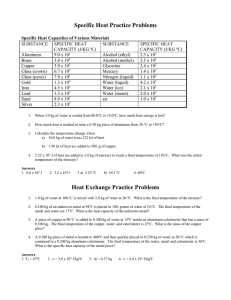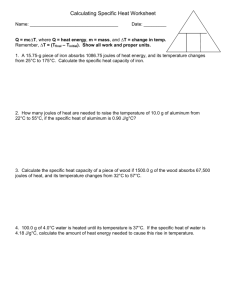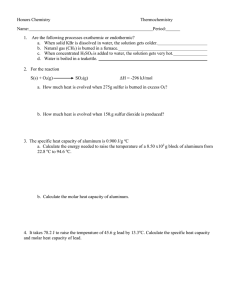1.4.2 Specific Heat Capacity Review
advertisement
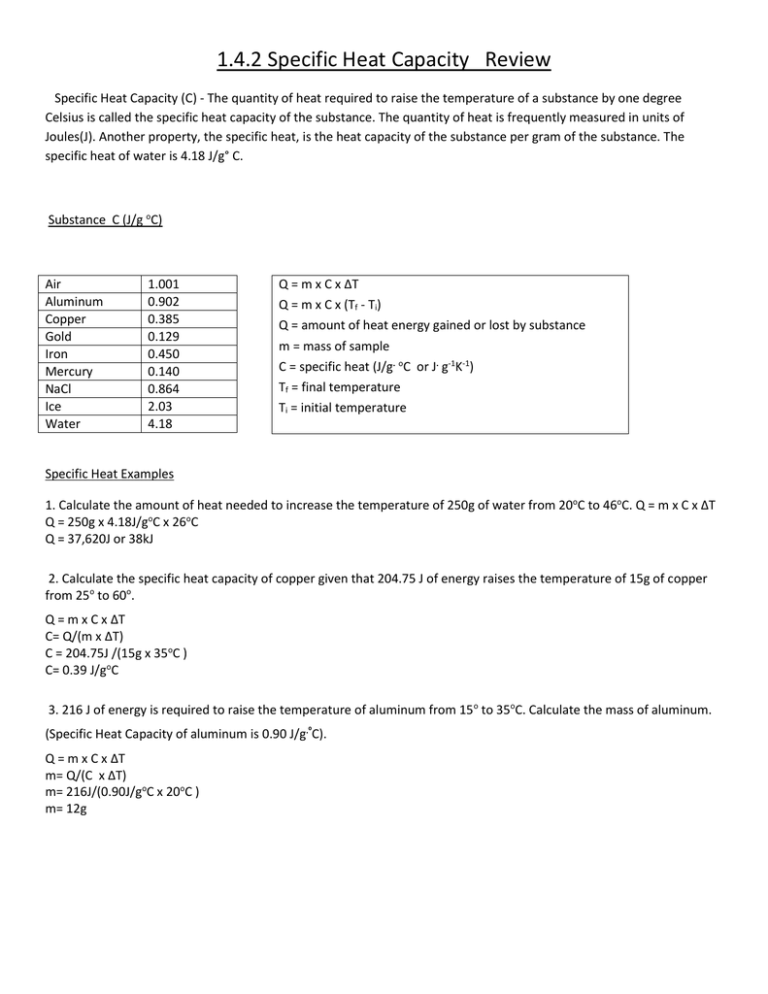
1.4.2 Specific Heat Capacity Review Specific Heat Capacity (C) - The quantity of heat required to raise the temperature of a substance by one degree Celsius is called the specific heat capacity of the substance. The quantity of heat is frequently measured in units of Joules(J). Another property, the specific heat, is the heat capacity of the substance per gram of the substance. The specific heat of water is 4.18 J/g° C. Substance C (J/g oC) Air Aluminum Copper Gold Iron Mercury NaCl Ice Water 1.001 0.902 0.385 0.129 0.450 0.140 0.864 2.03 4.18 Q = m x C x ∆T Q = m x C x (Tf - Ti) Q = amount of heat energy gained or lost by substance m = mass of sample C = specific heat (J/g. oC or J. g-1K-1) Tf = final temperature Ti = initial temperature Specific Heat Examples 1. Calculate the amount of heat needed to increase the temperature of 250g of water from 20oC to 46oC. Q = m x C x ∆T Q = 250g x 4.18J/goC x 26oC Q = 37,620J or 38kJ 2. Calculate the specific heat capacity of copper given that 204.75 J of energy raises the temperature of 15g of copper from 25o to 60o. Q = m x C x ∆T C= Q/(m x ∆T) C = 204.75J /(15g x 35oC ) C= 0.39 J/goC 3. 216 J of energy is required to raise the temperature of aluminum from 15o to 35oC. Calculate the mass of aluminum. (Specific Heat Capacity of aluminum is 0.90 J/g.⁰C). Q = m x C x ∆T m= Q/(C x ∆T) m= 216J/(0.90J/goC x 20oC ) m= 12g Even More Practice Questions 1. The temperature of a piece of Metal X with a mass of 95.4g increases from 25.0°C to 48.0°C as the metal absorbs 849 J of heat. What is the specific heat of Metal X? 2. When 435 J of heat is added to 3.4 g of olive oil at 21°C, the temperature increases to 85°C. What is the specific heat of the olive oil? 3. A piece of stainless steel with a mass of 1.55 g absorbs 141 J of heat when its temperature increases by 178°C. What is the specific heat of the stainless steel? 4. How much heat is required to raise the temperature of 250.0 g of mercury by 52°C? 5. How many kilojoules of heat are absorbed when 1.00 L of water is heated from 18°C to 85°C? (Hint: You first need to determine the mass of the water, and then calculate Q in the requested unit.) 6. A piece of aluminum with a mass of 100.0 g has a temperature of 20.0°C. It absorbs 1100 J of heat energy. What is the final temperature of the metal? 7. An unknown metal has a mass of 18.0 g. If the temperature of the metal sample rises from 15.0°C to 40.0°C as the sample absorbs 89.0 J of heat, what is the specific heat of the sample?
